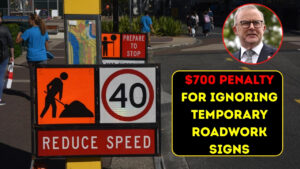Drivers above 65 are advised to understand how new traffic rules and medical assessments may affect their ability to drive. In Australia, there is increased focus on the upkeep of road safety which has resulted in the state transport regulators’ new guidelines aimed at older drivers.
Annual medical assessments
One of the more important concerns has to do with the candidates’ medical fitness to drive. New South Wales and Western Australia are two important states and territories that require annual medical assessments for older persons aged 75 and above. Enforcement of the requirements has now been tightened, especially concerning vision, cognitive function, and the willingness to declare significant illnesses. This policy attests to the increasing concern regarding the driving risks that are associated with the health of the elderly.
There are new policies which concern older drivers which state that if the driver does not renew their license, there are policies which will withdraw fines. In places such as Victoria and Queensland, persons aged 65 and above, need to pay close attention to the renewal notifications as new policies which state shorter license periods are becoming more prevalent. If the driver has not passed the renewal on time, the consequences include not having insurance as well as fines which in some places exceed $900. Police have stated that lack of knowledge does not exempt a person from any crime.
Driving at Night and Over Long Distances
The third caution is in regard to the restrictions of driving at night and traveling longer distances. Though it is not a total ban, transport services are strongly recommending that some older drivers, especially those with certain medical conditions, come to terms with the need to avoid these higher-risk situations. The use of conditional licenses, which restrict the times and locations a senior driver may operate a vehicle, is becoming more common. These restrictions are intended to ensure safety at the cost of some of the driver’s autonomy, which may come as a shock to those used to driving without limitations.
Increase in random fitness-to-drive assessments
The new cautions have also been supported by a rise in random assessments. Certain state and territory road authorities have started to reach out to some drivers older than 65 to conduct random reassessments, which have been recommended by medical professionals, or those who have been in an accident. These reviews may include additional eye exams and driving assessments. Noncompliance to these assessments will lead to automatic suspension or cancellation of their driving licenses.
Advocacy groups are opposing the lack of balance
While these senior driving advocacy groups have reacted prudently, they have accepted the need to maintain safety on the roads. These groups, however, are pleading with the lawmakers to stop treating all older drivers as a single category. They believe that many drivers in their 70’s and 80’s are still safe, responsible drivers with no issues on their driving records. Advocacy groups such as National Seniors Australia demand more pragmatic messaging so that senior Australians apprehend the requirements without excessive worry.
What over-65 drivers should do now
Research concluded that elderly motorists should schedule their medical examinations promptly, monitor the expiration dates of their licenses, and discuss with their general practitioners any medical conditions that are related to the ability to operate a motor vehicle. Also, there is a need to restrict driving at night if one has vision difficulties. Australia citizens above the age of 65 need to be proactive in order to enjoy their independence as they comply with the newly instituted traffic and safety regulations.



